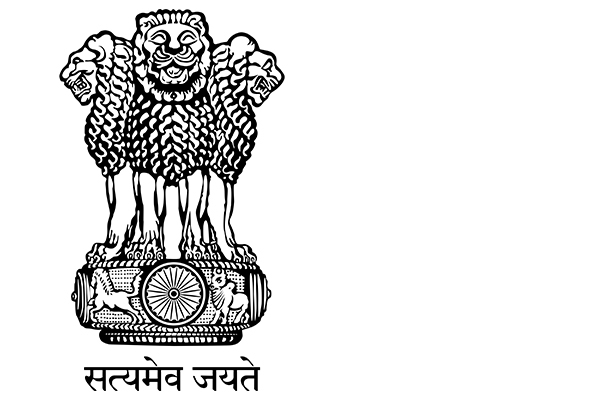(Contribution by PaedsDeptt.)
Q. What is diarrhea?
- A. Diarrhea is the passage of watery stools. This means body fluids and salts can be quickly lost from the body. The child becomes dry (dehydrated) and this is very dangerous and may kill the child.
Q. Why is diarrhea dangerous?
- A. When a person gets diarrhea, the body begins to lose a lot of water and salts – both of which are necessary for life. If the water and salts are not replaced fast, the body starts to “dry up” or get dehydrated. Severe dehydration can cause death.
Q. What is dehydration?
A. Dehydration is the loss of water and body salts through diarrhea.
The human body needs water to maintain enough blood and other fluids to function properly. If your body loses substantially more fluids than you are drinking, you become dehydrated.
You may lose fluids in a variety of ways:
- When urinating
- When you vomit or have diarrhea
- When sweating
- From the lungs during normal breathing.
Along with the fluids, your body also loses electrolytes, which are salts normally found in blood, other fluids, and cells.
Q. How does dehydration occur?
A. The usual causes of dehydration are a lot of diarrhea and vomiting. Dehydration can also occur if you do not eat or drink much during an illness or if you do not drink enough during or after strenuous exercise. Medications that cause fluids loss to control excess body fluid (diuretics) are a common long-term cause.
Although anyone can become dehydrated, those who become dehydrated the most easily are:
- Babies under 1 year old
- The elderly
- Anyone who has a fever
- People in hot climates.
Q. What are the symptoms of dehydration?
- A. Early features are difficult to detect but include dryness of mouth and thirst.
Q. How is dehydration treated?
- A. If you are mildly dehydrated, you need to drink enough liquid to replace the fluids you have lost. Also, you need to replace the electrolytes (Salts) you have lost. Drinking sips of water slowly, alongwith eating the diet which is high in salt, will replace fluids and salts you have lost.
- Non prescription medicines are available that help replenish fluids and electrolytes. You can also replace both fluids and electrolytes by drinking sports drinks or an oral rehydration solution (ORS).
Q. How long will the effects of dehydration last?
- A. If dehydration is not treated, it can cause death. If it is treated in time.
Q. How do I use an ORS package?
- A. Packets of oral rehydration salts are widely available. To use one of these packets, mix the contents with 1 quart or liter of drinking water. If drinking water is not available, or if you are not sure the water is drinkable, boil the water for at least 10 minutes.
Q. How do I prepare an ORS solution at home?
A. If ORS packets are not available, mix an oral rehydration solution using one of the following recipes; depending on ingredients and container availability : Recipe for making a 1 litre ORS solution using Sugar, Salt and Water
- Clean Water – 1 litre
- Sugar – Six teaspoons
- Salt – Half teaspoon
- Stir the mixture till the sugar dissolve.
Drink sips of the ORS every 5 minutes until urination becomes normal. (4-5 times)
Adults and large children should drink at least 3 quarts or liters of ORS a day until they are well.
If you are vomiting, continue to try to drink the ORS.
Someone with symptoms of sever dehydration needs to go to an emergency room or other health care facility to get intravenous fluids. If able to drink, he or she should also drink the ORS.
Q. Can the solution be made with dirty water?
- A. The benefits of fluid replacement in diarrhea far outweigh the risks of using contaminated water to make oral rehydration solution. In situations where it is difficult to boil water, mothers are advised to use the cleanest water possible.
Q. Can the ORS solution be stored?
- A. Generally a made-up solution should be covered and not kept for more than 24 hours.
Q. What should be done if the child vomits?
- A. Vomiting does not usually prevent the therapy from being successful. Mothers must be taught to persist in giving ORS solution, even though this required time and patience. They should give regular, small sips of fluid. Giving ORT reduces nausea and vomiting and restores the appetite.
Q. What sort of foods are good during diarrhea?
- A. Foods high in potassium are important to restore the body’s essential stores depleted during diarrhea. Such foods include lentils, bananas, mangoes, pineapples, pawpaw, coconut milk and citrus fruits. Certain foods should be avoided during diarrhea, for example those containing a lot of fibre such as coarse fruits and vegetables, whole grain cereals and spicy foods.
Q. Apart from ORT, are there any other important aspects to the management of diarrhea?
A. First of all, prevention including the following measures:
- Breastfeeding
- Environmental sanitation
- Personal hygiene
- Clean drinking water
- Clean preparation and storage of food
- Inspect and fly control
Secondly maintaining or increasing food and fluid intake during and after an attach of diarrhea.
Immunization Schedule
Birth - BCG, OPV, Hep-B
6 Weeks - PENTAVALENT-1 /DPT 1, OPV 1,Hep-B
10 Weeks - PENTAVALENT-2 /DPT 2, OPV 2,Hep-B
14 Weeks - PENTAVALENT-3 /DPT 3, OPV 3,Hep-B
9 Month - Measles
15 Month - MMR
18-24 Month - DTP & OPV 1st booster
2 Year - Typhoid
5 Year - DPT& OPV 2nd booster
Following are NOT contraindicated for administration of vaccines:
- Mild acute illness
- Low grade fever
- Mild diarrhea
- Pre maturity
- Malnutrition


 Deep Chand Bandhu Hospital
Deep Chand Bandhu Hospital 


